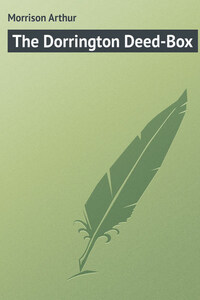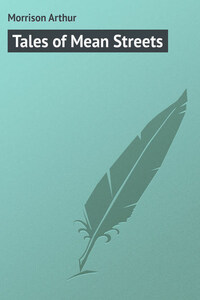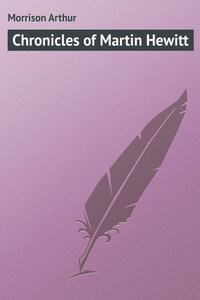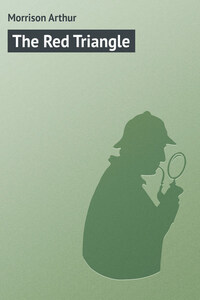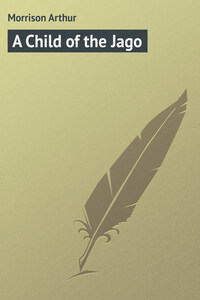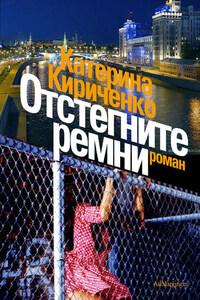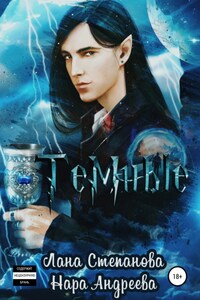I
THE NARRATIVE OF MR. JAMES RIGBY
I shall here set down in language as simple and straightforward as I can command, the events which followed my recent return to England; and I shall leave it to others to judge whether or not my conduct has been characterised by foolish fear and ill-considered credulity. At the same time I have my own opinion as to what would have been the behaviour of any other man of average intelligence and courage in the same circumstances; more especially a man of my exceptional upbringing and retired habits.
I was born in Australia, and I have lived there all my life till quite recently, save for a single trip to Europe as a boy, in company with my father and mother. It was then that I lost my father. I was less than nine years old at the time, but my memory of the events of that European trip is singularly vivid.
My father had emigrated to Australia at the time of his marriage, and had become a rich man by singularly fortunate speculations in land in and about Sydney. As a family we were most uncommonly self-centred and isolated. From my parents I never heard a word as to their relatives in England; indeed to this day I do not as much as know what was the Christian name of my grandfather. I have often supposed that some serious family quarrel or great misfortune must have preceded or accompanied my father's marriage. Be that as it may, I was never able to learn anything of my relatives, either on my mother's or my father's side. Both parents, however, were educated people, and indeed I fancy that their habit of seclusion must first have arisen from this circumstance, since the colonists about them in the early days, excellent people as they were, were not as a class distinguished for extreme intellectual culture. My father had his library stocked from England, and added to by fresh arrivals from time to time; and among his books he would pass most of his days, taking, however, now and again an excursion with a gun in search of some new specimen to add to his museum of natural history, which occupied three long rooms in our house by the Lane Cove river.
I was, as I have said, eight years of age when I started with my parents on a European tour, and it was in the year 1873. We stayed but a short while in England at first arrival, intending to make a longer stay on our return from the Continent. We made our tour, taking Italy last, and it was here that my father encountered a dangerous adventure.
We were at Naples, and my father had taken an odd fancy for a picturesque-looking ruffian who had attracted his attention by a complexion unusually fair for an Italian, and in whom he professed to recognise a likeness to Tasso the poet. This man became his guide in excursions about the neighbourhood of Naples, though he was not one of the regular corps of guides, and indeed seemed to have no regular occupation of a definite sort. "Tasso," as my father always called him, seemed a civil fellow enough, and was fairly intelligent; but my mother disliked him extremely from the first, without being able to offer any very distinct reason for her aversion. In the event her instinct was proved true.
"Tasso" – his correct name, by the way, was Tommaso Marino – persuaded my father that something interesting was to be seen at the Astroni crater, four miles west of the city, or thereabout; persuaded him, moreover, to make the journey on foot; and the two accordingly set out. All went well enough till the crater was reached, and then, in a lonely and broken part of the hill, the guide suddenly turned and attacked my father with a knife, his intention, without a doubt, being murder and the acquisition of the Englishman's valuables. Fortunately my father had a hip-pocket with a revolver in it, for he had been warned of the danger a stranger might at that time run wandering in the country about Naples. He received a wound in the flesh of his left arm in an attempt to ward off a stab, and fired, at wrestling distance, with the result that his assailant fell dead on the spot. He left the place with all speed, tying up his arm as he went, sought the British consul at Naples, and informed him of the whole circumstances. From the authorities there was no great difficulty. An examination or two, a few signatures, some particular exertions on the part of the consul, and my father was free, so far as the officers of the law were concerned. But while these formalities were in progress no less than three attempts were made on his life – two by the knife and one by shooting – and in each his escape was little short of miraculous. For the dead ruffian, Marino, had been a member of the dreaded Camorra, and the Camorristi were eager to avenge his death. To anybody acquainted with the internal history of Italy – more particularly the history of the old kingdom of Naples – the name of the Camorra will be familiar enough. It was one of the worst and most powerful of the many powerful and evil secret societies of Italy, and had none of the excuses for existence which have been from time to time put forward on behalf of the others. It was a gigantic club for the commission of crime and the extortion of money. So powerful was it that it actually imposed a regular tax on all food material entering Naples – a tax collected and paid with far more regularity than were any of the taxes due to the lawful Government of the country. The carrying of smuggled goods was a monopoly of the Camorra, a perfect organisation existing for the purpose throughout the kingdom. The whole population was terrorised by this detestable society, which had no less than twelve centres in the city of Naples alone. It contracted for the commission of crime just as systematically and calmly as a railway company contracts for the carriage of merchandise. A murder was so much, according to circumstances, with extras for disposing of the body; arson was dealt in profitably; maimings and kidnappings were carried out with promptitude and despatch; and any diabolical outrage imaginable was a mere matter of price. One of the staple vocations of the concern was of course brigandage. After the coming of Victor Emanuel and the fusion of Italy into one kingdom the Camorra lost some of its power, but for a long time gave considerable trouble. I have heard that in the year after the matters I am describing two hundred Camorristi were banished from Italy.
